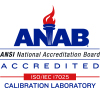
Food laboratories are essential to the processing and distribution of a wide variety of consumer products. Ensuring the safety and accountability of laboratory effectiveness, there are several groups responsible for facilitating every sequence of the food testing process. These groups include:
- Laboratory accreditors
- Proficiency testers
- Samplers
- Methodology testers
- Analytical Reporters
While each of these groups are assigned specific tasks, the overall goal is to research and identify any risk factors and prevent any and all products that may be harmful to the food marketplace. The main objective is to identify contaminants before a product is placed on the market, ensuring the highest quality product possible.
Laboratory testing and techniques are based upon methods of analyzing and testing a variety of parameters. Some include:
Food Packaging Testing – There are several types of packaging materials that are typically based upon the type of product being manufactured. Proper packaging prevents contamination and longer shelf life of products. In the United States, the FDA is responsible for regulating food packaging materials that are used throughout the manufacturing process. Regulated additives used in product packaging include adhesives, coatings, paper, cardboard, and any type of radiation used in the production process.
Microbiological Testing – According to the FDA, the overall purpose of microbiological testing is to identify and limit any harmful microorganisms that pose as a potential threat to carry diseases or contamination. Once the test is completed, the analyst should ensure that regulatory guidelines have been followed. To guarantee that there are absolutely no potential contaminants before the products are sent off to stores, manufactures may also apply safety management systems such as Good Manufacturing Practices (GMP) and Hazard Analysis Critical Control Point (HAACP). An example of a bacteria-prone product that should be tested and closely monitored are eggs. MadgeTech offers data loggers specifically for egg processors to monitor temperature and humidity exposure throughout production steps, storage and shipping. These devices are designed to aid users in the compliance of the Egg Products Inspection Act (EPIA).
Allergen Testing – While many suffer from food allergies, it is vital for manufacturers to confirm their products undergo allergen testing. In the lab, analysts utilize testing kits designed specifically for the monitoring of food allergens across a wide variety of products. With the results, companies can determine whether their products are safe to ship or require additional inspection.
MadgeTech’s Titan S8 provides the ideal solution to food laboratory monitoring and can assist with data integrity and recognition. With an eight-probe channel, the Titan provides users with dynamic, customized solutions that can be viewed from multiple locations in the laboratory such as oven mapping, process monitoring, and regulation compliance.






